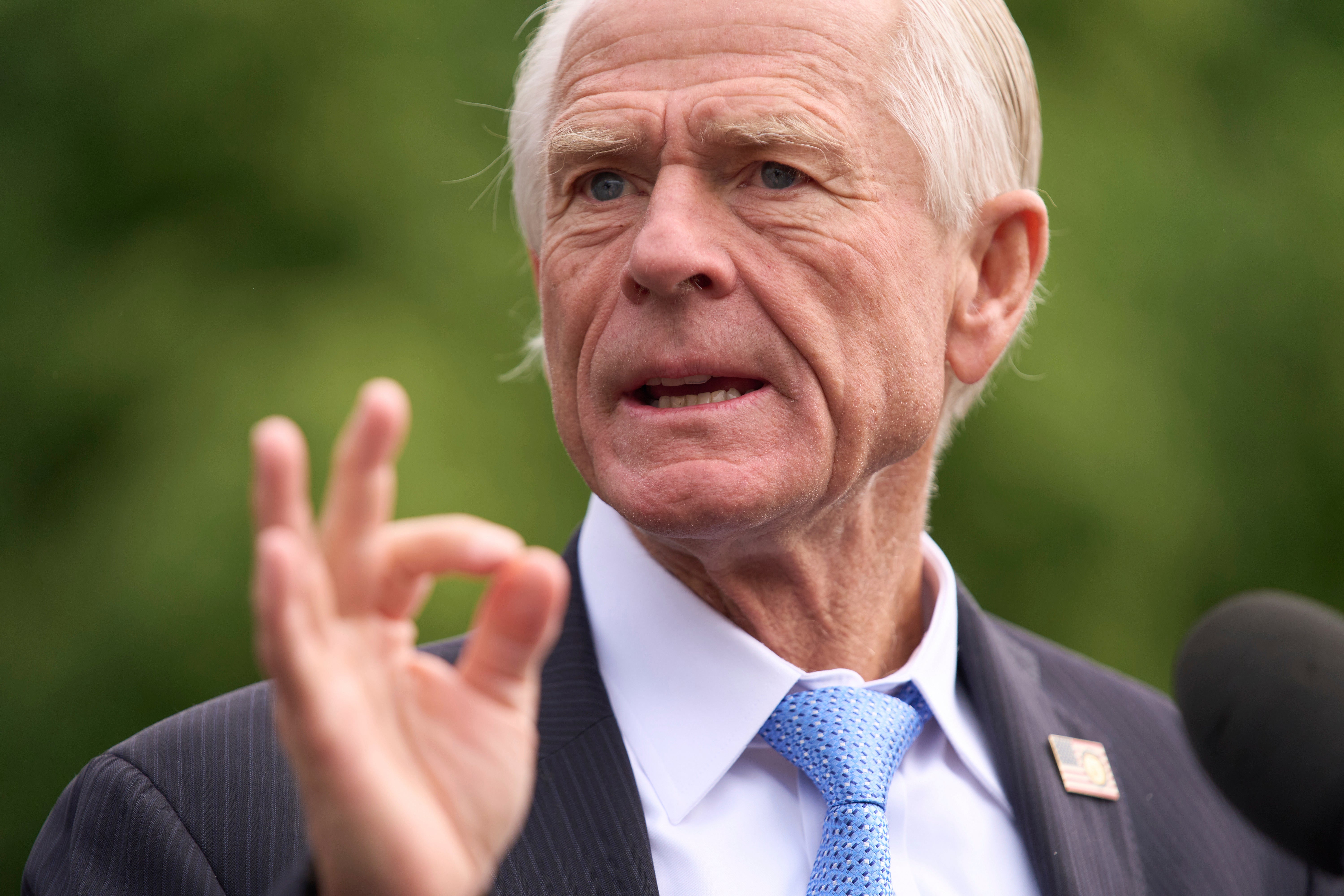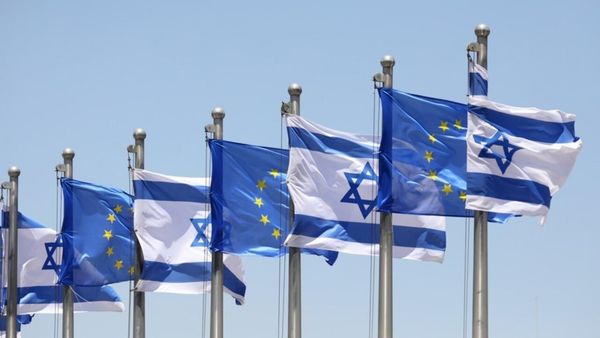Bank of England governor Andrew Bailey has said he hopes the UK can “rebuild” trade relationships with the EU after striking a trade deal with the US.
In an interview, he said it would be “beneficial” to reverse the post-Brexit reduction in UK-EU trade and that the US deal could set an example around the world.
Meanwhile, the shadow trade secretary Andrew Griffith warned that Sir Keir Starmer’s trade agreement with the US is “disappointing” and a more “comprehensive” deal is needed.
However, Labour’s Jonathan Reynolds stressed the urgency of the situation, stating that "we were at risk of thousands of people losing their jobs" without an agreement.
Despite the Tories attempts to criticise the deal, with Kemi Badenoch claiming the UK had been “shafted”, Donald Trump claimed the US had been attempting to reach a deal with the UK since his first term, but those in power “weren’t getting it done”.
The deal will see US tariffs on cars immediately slashed from 27.5 to 10 per cent, up to 100,000 vehicles, while levies on steel and aluminium will be reduced to zero. A general 10 per cent tariff for other goods will remain.
Key Points
- UK must do ‘everything we can’ to rebuild trade ties with EU, says Bank of England governor
- Tories hit back at ‘disappointing’ Trump agreement
- More clarity on deal needed, Sheffield steel company warns
- Britons would like chlorinated chicken, says Trump advisor
- UK-US trade deal urgently needed to protect working people
No10 refuses to rule out changes to digital services tax
12:42 , Holly EvansDowning Street has declined to rule out changes to the digital services tax as part of a future agreement with the United States.
Asked whether changes to the tax would be on the table in future negotiations, a Number 10 spokesman said: “The position on the digital services tax remains unchanged.
“Obviously, there are continuing discussions and, as I say, this is the beginning of the process.
“This deal marks only the beginning. We are continuing talks on that wider economic deal which will look at increasing digital trade, which is a tremendous opportunity.
“And that kind of work on a digital trade deal will strip back paperwork for British firms trying to export to the US, opening up the UK to a huge market that will measurably boost the UK economy.
“That deal also opens the way to a future UK-US technology partnership through which our science-rich nations will collaborate in key areas of advanced technology, for example biotech, life sciences, quantum computing, nuclear fusion, aerospace and space.”
Tech deal with US must keep children safe online, Lib Dems say
12:37 , Archie MitchellResponding to reporting that the UK has not ruled out a tech deal as part of future trading negotiations with the US, Daisy Cooper MP, Liberal Democrat Deputy Leader and Treasury Spokesperson, said: “As the Government starts the next phase of UK-US trade negotiations, the PM must be clear that the UK won't trade away our children's online safety, weaken protections against online scammers or give big tax breaks to US tech giants.
“The PM must express that any “science and tech partnership" with the US should boost R&D and strengthen supply chains - not double down on making the online world even more of a Wild West.
“Negotiating in the UK’s interests must include keeping our children safe online and ruling out massive tax breaks to tech billionaires like Elon Musk.”
What is the impact of the deal on the agricultural industry?
12:30 , Holly EvansThe two governments have negotiated new reciprocal market access on beef, giving UK farmers a tariff-free quota of 13,000 metric tonnes of meat.
There are concerns that the new reciprocal market access on beef could lead to a decline in food standards. However, the UK government insisted that there will be “no weakening of UK food standards on imports”, amid concerns a deal could pave the way for the import of hormone-treated beef from the US.
Donald Trump also played down concerns that it could open up UK markets to chlorine-washed chicken, saying the UK will “take what they want” when it comes to US beef and chicken imports, rather than being forced to accept lower standards.
US agriculture secretary Brooke Rollins added: “Specific to the beef, this is going to exponentially increase our beef exports. And to be very clear, American beef is the safest, the best quality, and the crown jewel of American agriculture for the world.”
A consistent red line in negotiations has been food standards, amid fears a trade deal could open Britain’s doors to hormone-injected beef and chlorinated chicken.
The phone call from Trump to Starmer that finally led to a trade breakthrough
12:00 , Holly EvansOn Wednesday night, the prime minister had been expecting to settle in to watch his beloved Arsenal take on Paris Saint-Germain in the semi-final of the Champions League.
The game would end in defeat for the London side, beaten in the French capital and ending another season trophyless.
But at the end of the fixture’s 90 minutes, Sir Keir Starmer had a reason to be happy.
Halfway through the game, he received a call from Donald Trump. And his longed-for US-UK trade deal – crucial for mitigating the harm of the swingeing US tariffs announced last month, and perhaps the key to saving his premiership – was on.
Read the full analysis from our politics team here:

The phone call from Trump to Starmer that finally led to a trade breakthrough
US trade deal a ‘political win’ but will do little for UK growth, say experts
11:37 , Holly EvansBritain’s trade deal with the US is unlikely to boost the economy much, experts have said, but some praised the lack of concessions on the UK side as a success.
Economists were sparing in their praise for the deal, with the National Institute of Economic and Social Research (Neisr) saying the boost for UK gross domestic product (GDP) will be minimal.
That is partly because a blanket 10% tariff imposed on imports of most goods by Mr Trump as part of his sweeping “liberation day” announcement remains in place, though talks are ongoing in a UK effort to ease it.

Ben Caswell, Neisr’s senior economist, said: “Whilst the new trade deal with the US constitutes a political win for the Government, the direct impacts on UK GDP are likely to be very small, given we export just £9 billion worth of cars to the US each year and the vast majority of goods won’t benefit from this tariff relief announcement.”
But he added that it would “deliver a welcome boost to business confidence amid the UK’s fragile economic outlook this year”.
Matthew Ryan, head of market strategy at finance firm Ebury, added that while it “unlikely to have any real implications for the UK economy”, and added that the terms of the deal are “not overly favourable” for Britain.
“Let’s not forget that this is also far from a full-blown trade agreement, which will likely take months, if not years, to be finalised, and it will still be some time before the finer details are ironed out.”
No concessions on Online Safety Act or NHS as part of UK-US trade deal
11:20 , Holly EvansThe general terms of the deal were published late on Thursday, and stated the UK and the US are “beginning negotiations” to “develop and formalise the proposals” that have been made.
It also suggested either country could “terminate” the “arrangement” in the future with written notice, and it could be further altered in the future at the request of either side.
The UK’s digital services tax, which mainly applies to US tech companies, was not revised as part of the deal as had been speculated.
The deal also does not include any concessions on the Online Safety Act or the NHS, the Business Secretary insisted.
In future, the UK will have “preferential treatment” when it comes to pharmaceuticals, as Mr Trump considers import taxes on drugs and medicines.
Rachel Reeves says the UK did not cave to 'performative politics' in securing deal
11:01 , Holly EvansRachel Reeves has said that she is “proud” that the UK is the first country to strike a deal with the US after Donald Trump imposed sweeping tariffs, describing it as a “landmark” agreement.
Writing in The Times, the chancellor said that the deal would protect thousands of jobs in the car and steel industry, and will provide “unprecedented market access” for British farmers.
“There are those who would have advocated we take a different approach,” she wrote. “That we cave into the performative politics, which would have made for a good soundbite, but would have harmed our economy, threatened business, and put working people out of work.
“Those are not the actions of a government acting in the national interest and they are not the actions I will take.”

Analysis: Trump and Starmer put lipstick on a pig of a trade deal
10:52 , Holly EvansMore than a month after Donald Trump set the global economy on fire to rebalance America’s trade relationship with the entire world, the self-proclaimed master negotiator has finally struck his first deal.
Given that the entire premise of Trump’s tariff gambit was that countries were “taking advantage” of the United States, it might come as a surprise that his first agreement was with one of the few countries with which the U.S. has a trade surplus.
The president did not let that small detail spoil the celebration.
“We have a big economic security blanket, and that’s very important, and we feel very, very comfortable with that, because it’s been a great ally, truly one of our great allies,” Trump said at the White House, announcing the tentative deal with the United Kingdom.
Read the full analysis here:

Join our Q&A and ask a question about the US-UK trade deal
10:30 , Holly EvansThe landmark US-UK Economic Prosperity Deal has been agreed — and it’s already being hailed as one of Keir Starmer’s biggest triumphs as prime minister. Just days after clinching a long-delayed trade deal with India, Sir Keir has secured an agreement with Donald Trump’s White House that promises to ease tariffs, open markets and deepen ties between the two countries’ economies.
The Independent’s chief political commentator, John Rentoul, will be live from 3pm BST to answer your questions on what the deal means for Britain – from which sectors stand to gain, to how Starmer managed to win over an unpredictable US president and what impact this could have on future talks with the EU.
Submit your questions here and join us at 3pm to hear John’s take on how the deal was done, what’s in the fine print, and how the politics of trade could reshape Britain’s economic future.
Trump bullying Starmer has got him what he wants in US-UK trade deal, says MP
10:22 , Holly Evans
Trump bullying Starmer has got him what he wants in US-UK trade deal, says MP
Analysis: Andrew Bailey lays down gauntlet for Starmer to prioritise EU ties ahead of major summit
10:15 , Holly EvansOur political correspondent Millie Cooke reports...
Andrew Bailey has stressed the important of learning lessons from the global instability seen in recent years, as he sets out on a mission to encourage Britain rebuild its ties with Europe.
In a speech just days before a major UK-EU summit – a key part of Sir Keir Starmer’s “reset” mission with the European Union – the governor of the Bank of England stressed that the “global economic environment is likely to continue to be challenging – and less predictable – than it was in the past.”
He urged policymakers to “adapt and develop to ensure that our processes are nimble and robust” in a speech that came just hours after he urged the UK to do “everything we can” to improve long-term trade by rebuilding ties with the EU.
This, he said, would have a positive impact on inflation in Britain. After signing major trade agreements with both India and the United States over the last week, Mr Bailey is now laying down the gauntlet for the prime minister to make his EU summit count, and sign something just as significant with the UK's largest trading partner.
Andrew Bailey: UK must 'learn lessons' from global shocks as inflation returns to target
10:05 , Millie CookeThe UK is "on course to put the inflation surge firmly behind us", Andrew Bailey said, whilst warning that we must "learn the lessons from the difficulties we have faced".
He said that there is now a "positive story to tell" as the economic effects of global shocks have faded, saying that inflation is now returning "sustainably to target".
"It is testament to the strength and resilience of this framework that we can say we are on course to put the inflation surge firmly behind us", he said.

But Mr Bailey warned against complacency, urging policymakers and forecasters to learn lessons from the instability.
"Our models, infrastructure and analytical frameworks were challenged by the sheer scale and unpredictability of the shocks that hit us. Underlying issues were revealed under the stress of these big unforeseeable events", he said.
"We need no reminder that the global economic environment is likely to continue to be challenging – and less predictable – than it was in the past. So we need to adapt and develop to ensure that our processes are nimble and robust, and that our monetary policy decisions are communicated effectively, while ensuring that we continue to act methodically in response to inflationary pressures."
What is chlorinated chicken and will it be sold in the UK after Trump trade deal?
09:55 , Holly EvansThe government has insisted Britain’s food standards would not be compromised after the UK and the US agreed on a trade deal to eliminate a series of tariffs.
Agriculture is a key part of the new trade deal announced on Thursday by Sir Keir Starmer and Donald Trump. Tariffs have been reduced on US products, including beef and ethanol, in return for moves that help British cars and steel.
After the deal was announced, government sources insisted imports of hormone-treated beef or chlorinated chicken, previously described as red lines for the UK in any agreement, would remain illegal.
Read the full article here now:

What is chlorinated chicken and will it be sold in the UK after Trump trade deal?
The world is now 'very different' because of 'unprecedented global shocks', Andrew Bailey says
09:50 , Millie CookeThe world has been "very different" over the last five years as a result of "unprecedented global shocks", Andrew Bailey told the Reykjavík economic conference.
Giving a speech on responding to global shocks, the governor of the Bank of England said the "largest pandemic in a century, the largest war in Europe since 1945, and now a trade war between the world’s two largest economies" have "created a very challenging environment for monetary policy".
He added: "These are not small and simple disturbances to aggregate demand, and they come against a backdrop of low productivity growth and ageing populations."
While it remains to be seen how recent changes to global trade policies will play out and what the effects on our economies will be, the effects of the pandemic and Russia’s brutal war on the Ukrainian people are fresh in our minds.
"Our economies have suffered, inflation has surged. These have been hard times for businesses and households, not least those on lower incomes."
Tories in chaos over trade deal response
09:40 , Archie MitchellThe Conservative response to Britain's trade deal with the US has been mired in chaos.
Kemi Badenoch said Britain had been "shafted" in negotiations with Donald Trump, while shadow business secretary Andrew Griffith said the agreement would be "welcomed by exporting businesses".
The chaos signals the unease in Tory ranks at having to stomach a Labour prime minister agreeing a deal which eluded successive Conservative prime ministers.
Ms Badenoch also opposed Sir Keir's trade deal with India on Tuesday, with business secretary Jonathan Reynolds asking "who do they want us to trade and do business with"?
But it is not the first time members of Ms Badenoch's shadow cabinet have publicly read from different scripts to their party leader, and is a sign of the lacking discipline in the Conservative operation as it seeks to rebuild itself in opposition.

Lib Dems call for 'deepening cooperation' with EU for vital business boost
09:32 , Holly EvansResponding to the Governor of the Bank of England’s comments that the UK now needs to "rebuild" Britain's trade relationship with the EU, Liberal Democrat Deputy Leader and Treasury Spokesperson Daisy Cooper said: “Andrew Bailey has today added his voice to what Liberal Democrats have been saying for years: that we urgently need to rebuild our trading relationship with our closest and most significant economic partners in Europe.”
“This isn't about revisiting the past, it's about boosting our economy and deepening cooperation for the future.
“Despite the Government’s US deal, Trump’s trade tariffs are still hitting key British industries and threatening the livelihoods of people across the UK.”
“The Government must embrace a pragmatic and ambitious approach to our relationship with the EU - cutting red tape and providing a vital boost for our businesses.”
UK must do ‘everything we can’ to rebuild trade ties with EU, says Bank of England governor
09:29 , Holly EvansThe governor of the Bank of England has said the UK must do “everything we can” to improve long-term trade by rebuilding ties with the EU.
Andrew Bailey told the BBC the deal would be “beneficial” to “rebuild” trade relationships with the EU, amid government talks with the EU to reset its trade and security relationship.
“It is important we do everything we can to ensure that whatever decisions are taken on the Brexit front do not damage the long-term trade position. So I hope that we can use this to start to rebuild that relationship,” he said.
Asked what impact a closer relationship between the UK and the EU would have on the economy and inflation, Mr Bailey said: "It would be beneficial. Having a more open economy to trade with the European Union. Because there has been a fall-off in goods trade with the EU over recent years."
Read the full article here:
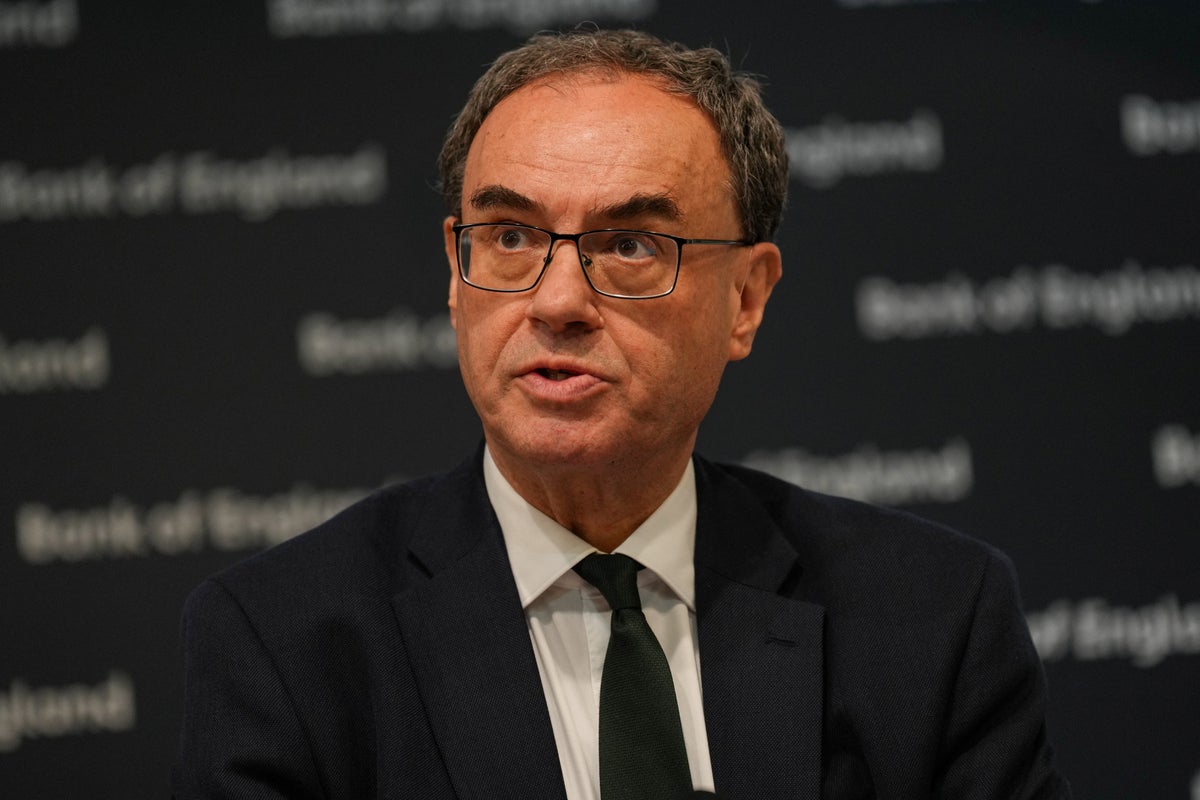
UK must do ‘everything we can’ to rebuild trade ties with EU, says bank boss
UK steel director says industry remains unclear on the details of US deal
09:13 , Holly EvansThe director general of UK Steel said the exact details of the UK-US trade agreement for the industry had not yet been revealed.
Gareth Stace told Times Radio: “The headline here is that we’re really pleased with Government’s negotiations ability to scrap that 25% tariff burden that we have suffered since March. But yes, we don’t know the details.
“We don’t know when this deal comes into force for steel, we don’t know what conditions we need to meet in order to remove the 25% tariff, and we don’t know, crucially also, if all steel producers that export to the US market will be included or excluded.
“There may be issues around ownership, around where the steel is made, and until we see those details, we don’t know whether this heavy burden will be lifted from us.”
Mr Stace said reports that British Steel was more likely to be nationalised after the deal “would be a good thing” on a temporary basis to drive investment across the sector.
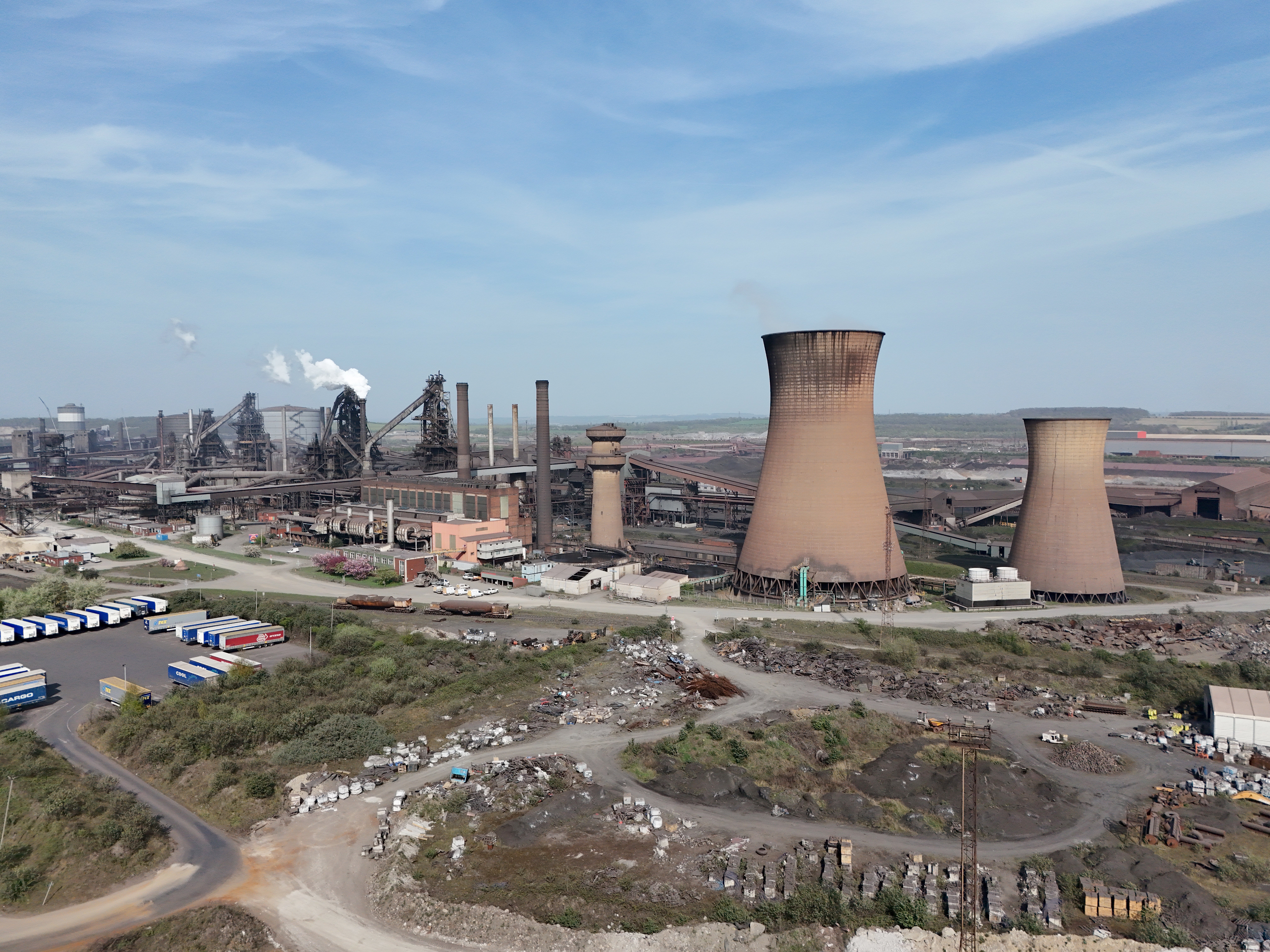
US having veto over Chinese veto reports are 'complete nonsense', says minister
09:00 , Holly EvansReports that the US will have a veto over Chinese investment in Britain as a result of the UK-US trade deal are “complete nonsense”, Darren Jones said.
The Telegraph reported that such a veto is part the deal, but Treasury minister Mr Jones told Times Radio: “This story on the front page of the Telegraph is complete nonsense. I mean, I’m at a bit of a loss as to know where it’s come from. I think it was a Conservative Party criticism.
“But as you said, we’ve not even published all of the documents yet, so I’m not quite sure how they were able to come up with that.
“I can be completely categorical with you there is no such thing as a veto on Chinese investment in this trade deal, this is not what this trade deal is about.
“It is a sectoral trade deal in relation to tariffs in key sectors, in the way that we’ve just been talking about. So I’d suggest the Conservative Party reads the documents and they maybe come back for a second go.”
David Lammy: Trade deal proves UK does not need to choose between the US and EU
08:50 , Holly EvansThe connections between the UK and the US are deeply personal for so many Brits. As a teenager, I spent long summers in New York with family. I went to study at Harvard as a young man. After graduating I practised as a lawyer in San Francisco.
The world has changed a lot since then. The 2008 global financial crisis marked the end of the era of hyper-globalisation. The coronavirus pandemic exposed the danger of unreliable supply chains.
Putin's illegal invasion of Ukraine was not only an attack on the Ukrainian people, but also the international order established in the wake of the Second World War, which imposed an energy price shock on every home in Britain.
Read the full analysis from foreign secretary David Lammy here:

David Lammy: Trade deal proves UK does not need to choose between the US and EU
Beef industry remains 'very nervous' despite UK-US trade deal providing greater market access
08:40 , Holly EvansThe UK-US trade agreement will provide greater market access for the beef industry, a leading food industry executive said.
Neil Shand, chief executive of the National Beef Association, said 13,000 tonnes of US and British beef would be eligible to export to either country as part of the agreement but added the industry “remains very nervous” about the current Government’s policies.
Asked what the UK would gain from the deal, he told Times Radio: “We have access to the US market. We had limited access – there’s a carryover of a WTO (World Trade Organisation) deal that the US had, that existed from pre-Brexit times, and we were allowed to send small amounts of beef to the US, but this will allow our market to grow as well.
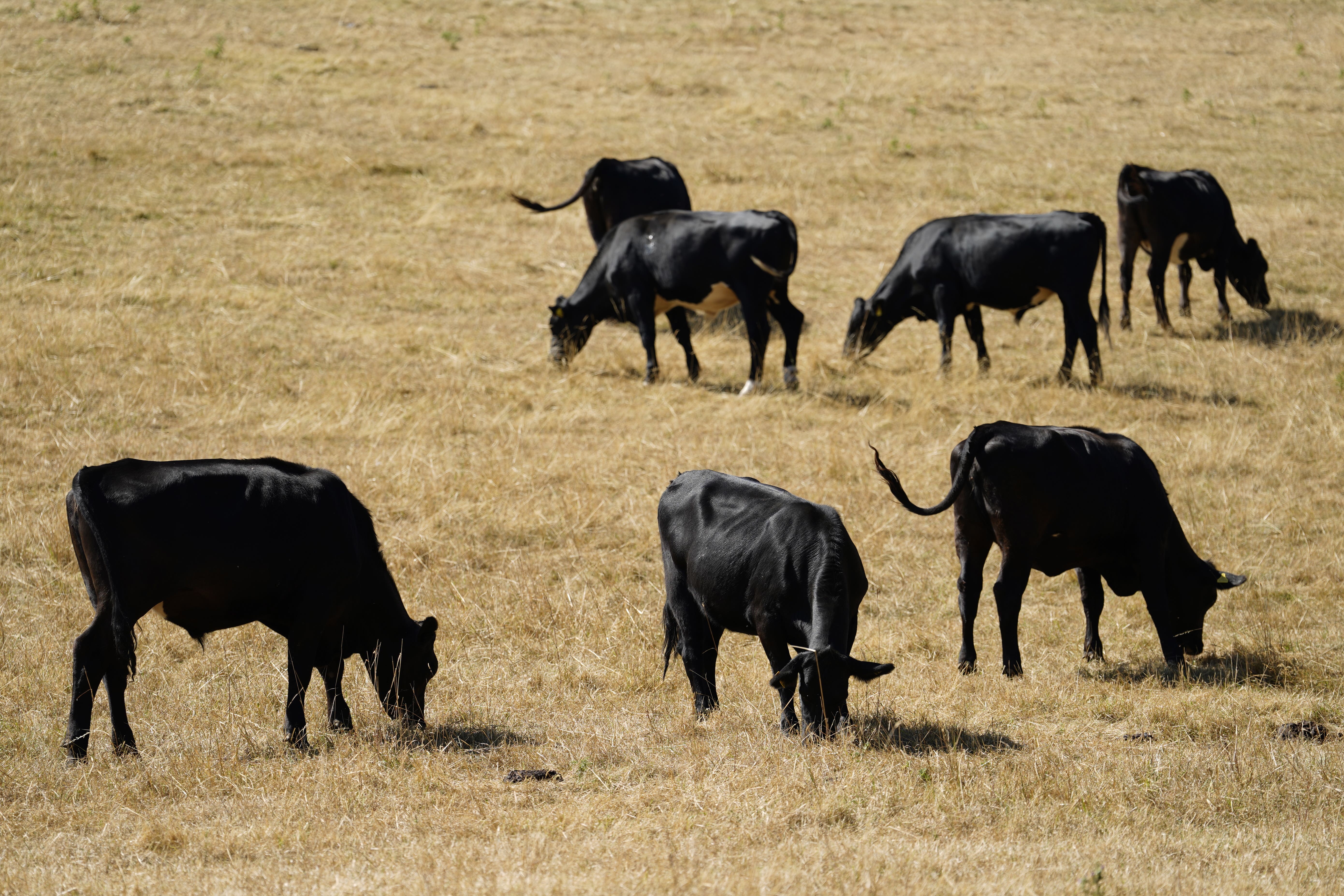
“In volume terms, there is an argument that they have a bigger access or a larger quantity into our market. But in the overall scheme of things, 13,000 tonnes is not a huge amount of beef, if you consider last year we imported 241,000 tonnes.
“We’re not self-sufficient, and it is important that we are able to provide beef eating consumers with a product.”
Mr Shand said it was likely the US-imported beef would be used in the services industry instead of being sold on supermarket shelves, as leading retailers “are not going to break rank” on British beef agreements.
Treasury minister says UK-US trade deal urgently needed to protect working people
08:31 , Holly EvansThe UK-US trade deal needed to be urgently agreed to avoid job losses, Darren Jones has suggested.
Asked if agreeing the deal was urgent by BBC Breakfast, the Treasury minister said: “Yes, yes, it was.”
Pressed if this was because of the threat of job losses, Mr Jones added: “Of course, which is why it was so important that we’ve got the deal over the line.”
The minister was also resolute about the need to sign the deal, after being questioned about whether it left the UK better off than before Donald Trump’s tariffs were first introduced.
He told the BBC: “If I could rather be in a world where there were no tariffs, of course I would. But that’s just not the world that exists. So it’s not really an option on the table. The option on the table is to have not signed a trade deal with the United States and had higher tariffs, or to have signed a trade deal with the United States and had lower tariffs.
“We’ve signed that trade deal. We’ve got lower tariffs in critical manufacturing sectors in the UK. 150,000 people’s livelihoods that we’ve protected as a consequence of that trade deal. That is, by definition, factually better off as a consequence of the action that this Government is taking to stand up for working people across the UK.”
Thousands of UK workers feared ‘days’ away from job losses without new US-UK trade deal
08:22 , Holly EvansUK workers were just "days" away from job losses if a new trade deal hadn’t been struck between the UK and US, the Trade Secretary has warned.
Speaking on BBC’s Newsnight, Jonathan Reynolds stressed the urgency of the situation, stating that "we were at risk of thousands of people losing their jobs" without an agreement.
The deal, hailed as "historic" by Labour leader Sir Keir Starmer, offers a lifeline to British industries, particularly high-end car manufacturers and steel producers.
The agreement sees US import taxes on British cars slashed from a crippling 27.5 per cent to 10 per cent, while the 25 per cent tariff on steel has been completely eliminated.
Read the full article here:

UK workers ‘days’ away from job losses without new US-UK trade deal
British Airways owner IAG buys 32 new Boeing planes from US amid trade deal
08:10 , Holly EvansBritish Airways’ parent company has bought 32 new Boeing planes from the US, following the country’s trade agreement with the UK on Thursday.
International Airlines Group (IAG) confirmed the order of the Boeing 787-10 aircraft for its BA fleet, alongside 21 Airbus planes for its other airlines on Friday morning.
US commerce secretary Howard Lutnick had said the previous day that plane engines and other aeroplane parts would be excluded from trade tariffs as part of the trade deal.
“We’ve agreed to let Rolls Royce engines and those kind of plane parts come over tariff-free,” he said.
IAG boss Luis Gallego said the order was a “milestone” for the conglomerate and would “strengthen our core markets” over the next decade.
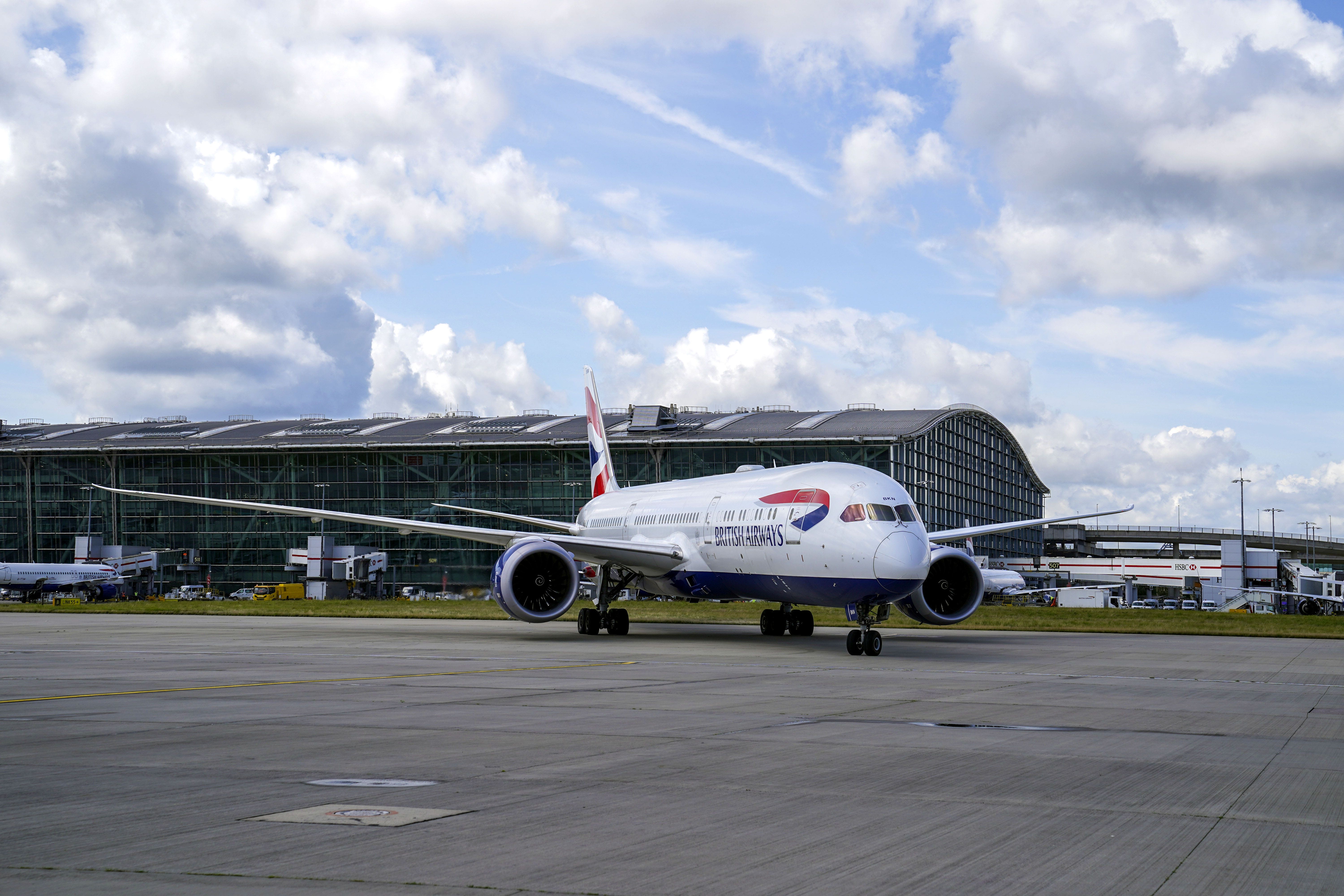
More clarity needed, Sheffield steel company warns
07:59 , Alexander ButlerSheffield steel manufacturer Marcegaglia’s president Liam Bates urged “more clarity” on the deal. “It would be good to get more clarity on when this removal is effective from,” he said.
Levies on steel and aluminium will be reduced to zero, however, a general 10 per cent tariff for other goods will remain.
Tories hit back at ‘disappointing’ Trump agreement
07:58 , Alexander ButlerSir Keir Starmer’s trade agreement with the US is “disappointing”and a more “comprehensive” deal is needed, the shadow trade secretary warned.
Conservative MP Andrew Griffith said the historic deal was not a “classic trade agreement” and there were still questions to be answered about industries like film and pharmaceuticals.
“There’s nothing on film and TV, and yet at the start of the week the government was talking about 100 per cent tariffs on that. It’s not a trade agreement in the classic sense.”
Mr Griffith added that it was unclear whether tariffs will be negotiated down on pharmaceutical exports as part of the deal.
The deal will see US tariffs on cars immediately slashed from 27.5 to 10 per cent, up to 100,000 vehicles – almost the total number exported last year.
Levies on steel and aluminium will be reduced to zero, however, a general 10 per cent tariff for other goods will remain.
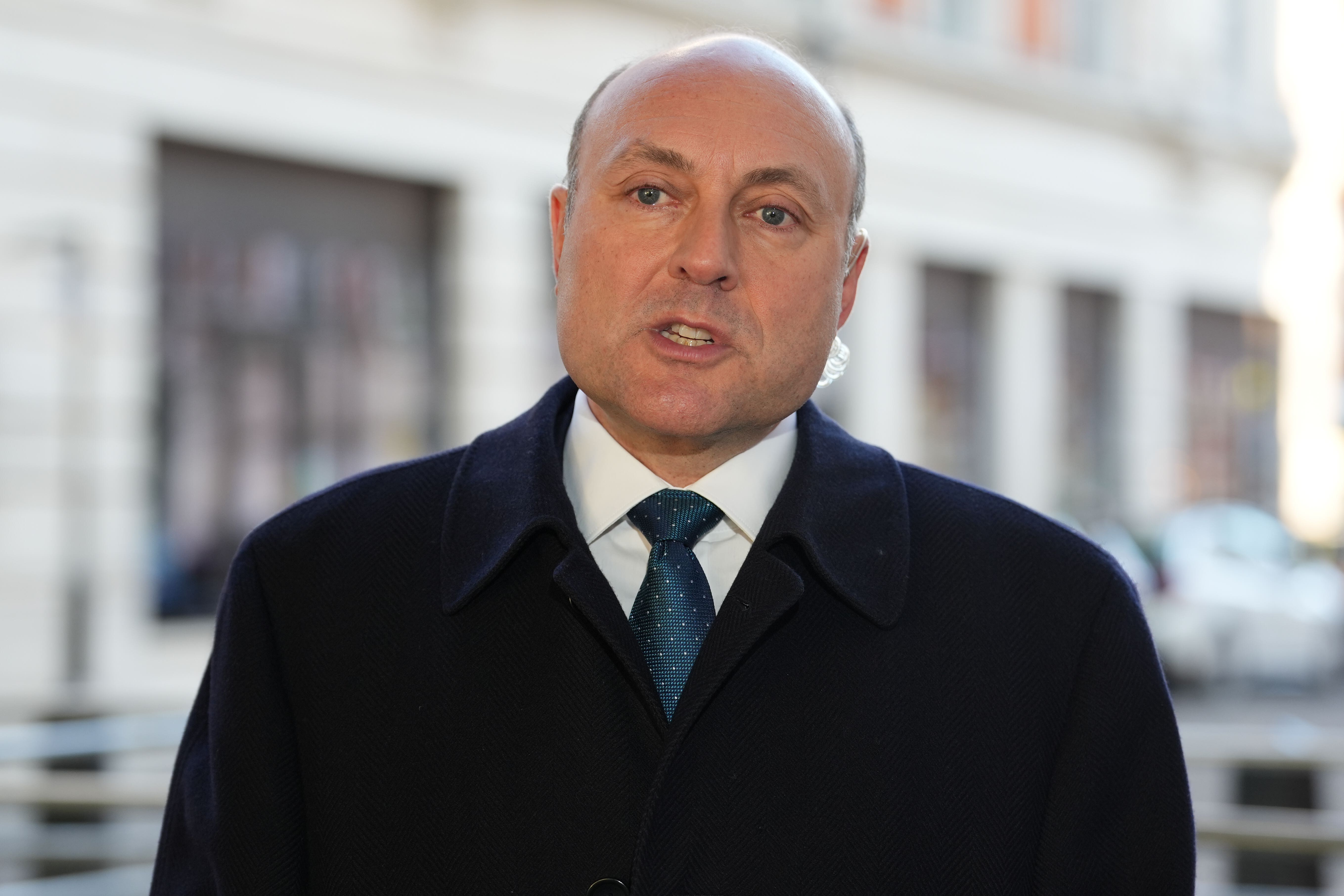
Editorial: This historic US trade deal is a personal victory for Keir Starmer
07:47 , Alexander ButlerBy any standard, going from “Two-Tier Keir” to “Two-Deal Keir” in the space of two days counts as a considerable achievement.
Britain’s new multibillion-dollar trade deal with the United States, coming as it does so soon after the equally consequential, far-reaching partnership agreement with India, has bestowed a much-needed sense of momentum and purpose on Sir Keir Starmer's beleaguered administration.
So also, presumably, will the “Brexit reset” that may well be revealed at the EU-UK summit later this month.
Britain has thus concluded – or shortly will – closer economic partnerships with the largest population on earth (India), the largest and still the most dynamic economy (America), and the UK’s most crucial single market (Europe). Last week may have been a miserable one for the prime minister, but he has every reason to feel confident now.
Sir Keir should feel vindicated, too. Even as equable a man as the prime minister will have felt sorely tried since President Donald Trump launched his tariff schedules, not to mention the doubts some of his most prominent colleagues, notably the vice-president, JD Vance, have cast on support for Ukraine, Nato and the transatlantic alliance.
Read the full editorial here:
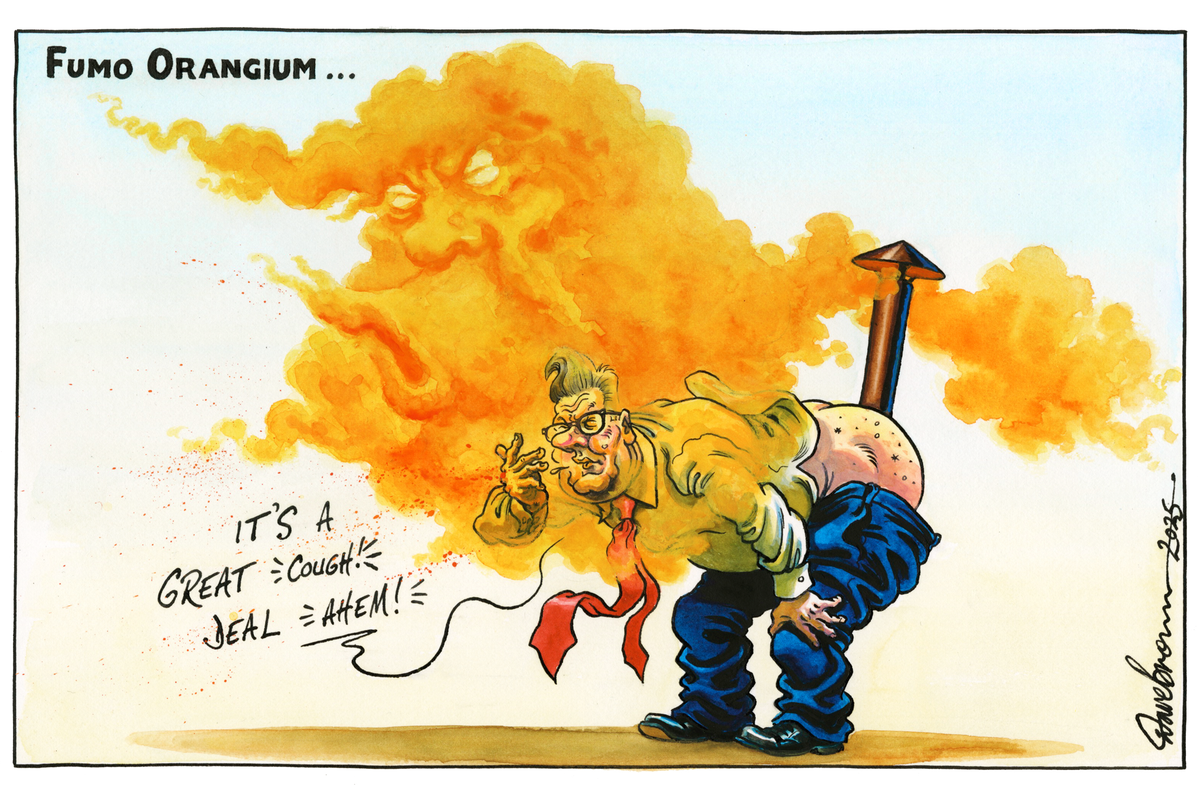
This historic US trade deal is a personal victory for Keir Starmer
No concessions for film and TV industry
07:41 , Alexander ButlerThere have been no concessions secured for the film and TV industry, after Mr Trump threatened to apply a 100 per cent levy on films made outside America, which the PM has been warned would devastate film and TV production in the UK.
Marcus Ryder, chief executive of the The Film and TV charity told The Independent: “Trump’s tariffs could wipe out the UK industry because we are so dependent on foreign direct investment for films being made here.”
Mr Ryder said dozens of people had contacted him since Mr Trump’s announcement with “existential dread” about the future of the industry.
“People are worried and their anxiety levels are off the scale,” he said. “The tariffs are already having an impact before they have even been introduced.”
“It would cut off production houses and strangle the entire ecosystem, including the TV industry. But nobody has any idea what the tariffs could mean. There is a lot of uncertainty.”
Are there any trade-offs for the UK?
07:38 , Millie CookeThere are concerns that the new reciprocal market access on beef could lead to a decline in food standards. However, the UK government insisted that there will be “no weakening of UK food standards on imports”, amid concerns a deal could pave the way for the import of hormone-treated beef from the US.
Donald Trump also played down concerns that it could open up UK markets to chlorine washed chicken, saying the UK will “take what they want” when it comes to US beef and chicken imports, rather than being forced to accept lower standards.
US agriculture secretary Brooke Rollins added: “Specific to the beef, this is going to exponentially increase our beef exports. And to be very clear, American beef is the safest, the best quality, and the crown jewel of American agriculture for the world.”
Alongside this, there were also concerns that the US was trying to win concessions on Britain’s digital services tax, paid by overseas search engines and social media sites on revenues from the UK. But today’s deal saw the tax left unchanged.
A change to the tax would have been a boost to major American firms such as Amazon, Facebook owner Meta and Google owner Alphabet.
Instead the two nations have agreed to work on a digital trade deal that will strip back paperwork for British firms trying to export to the US - something the government said would open the UK up to a “huge market that will put rocket boosters on the UK economy”.
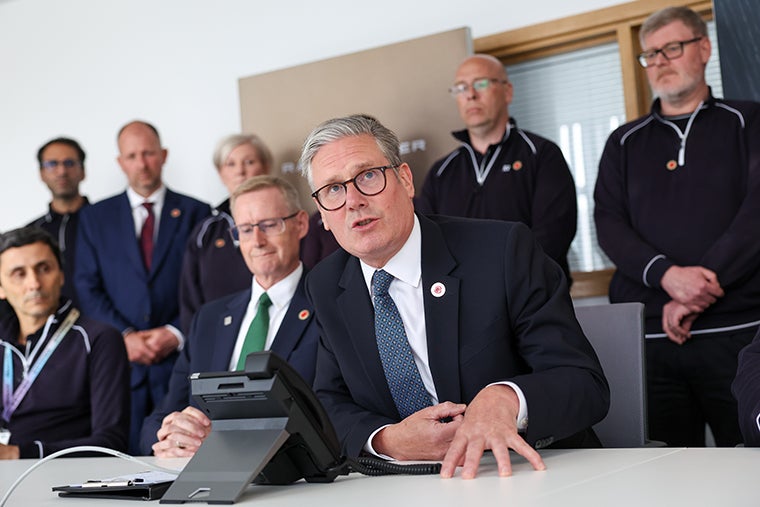
What carve-outs has the UK secured?
07:35 , Archie MitchellThe deal, which the UK government has said will save “thousands of jobs”, will see car export tariffs slashed from 27.5 per cent to 10 per cent, for a quota of 100,000 UK cars. This, the government said, is almost the total the UK exported last year.
Mr Trump’s 25 per cent tariffs on steel will be axed entirely, while a levy on ethanol – which is used to produce beer – coming into the UK from the US has been removed entirely.
In addition to this, the two governments have negotiated new reciprocal market access on beef, giving UK farmers a tariff free quota of 13,000 metric tonnes of meat.
Downing Street has also said that the US has agreed to give the UK “preferential treatment” in any further tariffs imposed as part of Section 232 investigations - a process where the US government determines if certain imports threaten US national security.
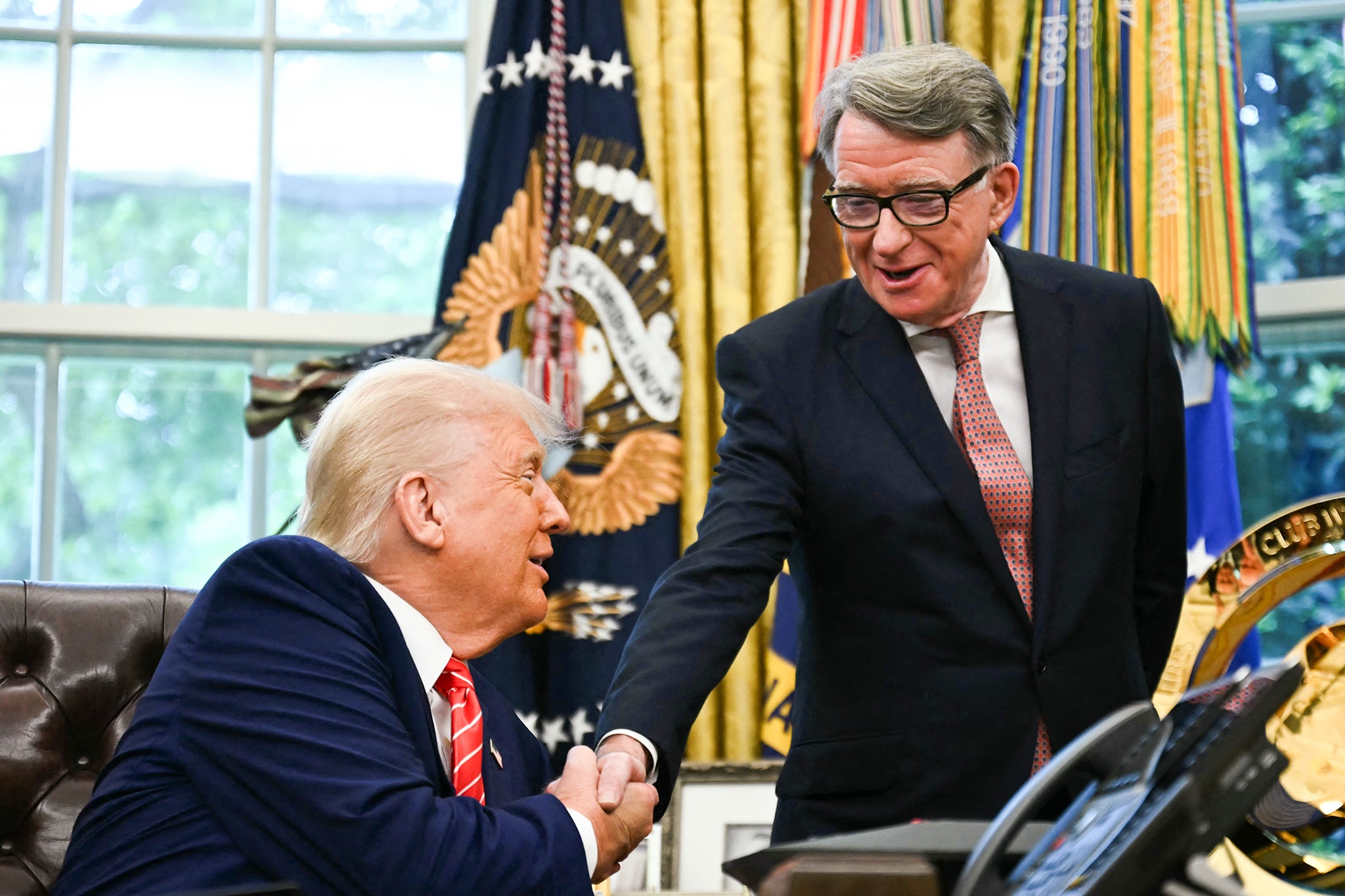
Britons would like chlorinated chicken, says Trump advisor
07:26 , Alexander ButlerDonald Trump's top trade adviser has suggested British consumers would like US-produced chlorinated chicken and hormone-fed beef if it were made available in UK supermarkets.
Peter Navarro said concerns over food hygiene standards were a “phony tool that's used to suppress what is very fine American agricultural product”.
He added: “We don’t believe that once they taste American beef and chicken that they would prefer not to have it.”
